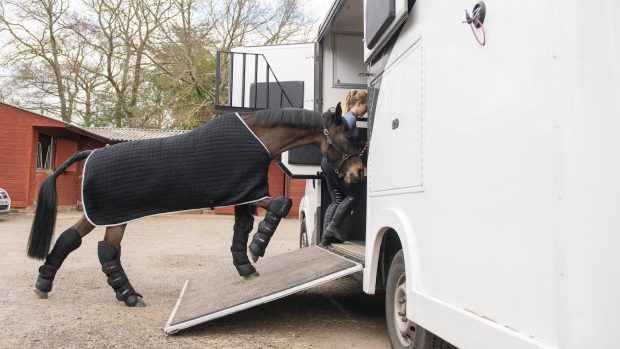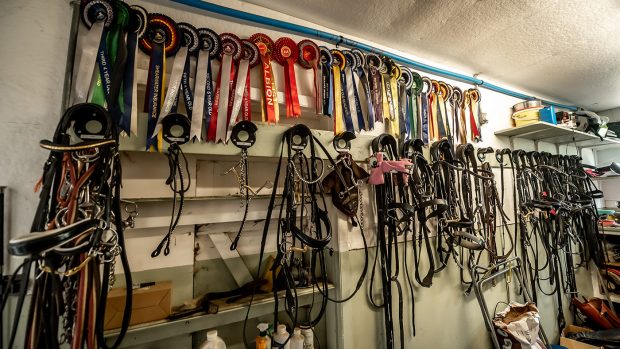Ever wondered why your farrier is a bit, well, grumpy? The following things could have something to do with it...
1. You’re late for your appointment
Farriers have a busy schedule and someone not turning up on time throws it all out. Anyway, being late is just rude and disrespectful. Don’t do it. If you can’t make the appointment and have asked someone at your yard to hold your horse for you while he’s shod, make sure they know what time they’re needed.
2. Your horse is still in the field
See above. If the horse isn’t actually ready to be shod, it’s no different to you being late.
3. Your horse is filthy
OK, so a lot of horses live out, and yes, there’s a strong tendency towards rain and mud in the UK at this time of year. So make sure you get to the yard well ahead of your appointment so you have time to clean your horse’s hooves – brush off your horse’s legs, pick out his feet and wipe them clean with a dry towel. You wouldn’t go to the dentist without cleaning your teeth first, would you? This is no different.
4. Your horse has got wet legs
You may have thought washing the mud off your horse’s legs or giving him a proper bath before shoeing was a good idea — but farrier’s rasps are designed to work on dry feet, and wet hooves can blunt them, plus wet hooves retain moisture so the shoeing isn’t as accurate. And farriers don’t want to have to go to their next client with wet trousers! Again, the soggy British weather has a lot to answer for, but if you’re able to give your farrier a dry horse and a dry flat area to work with, you’ll be well on your way to becoming their favourite client.
5. You’ve read some articles about horse’s hooves
Maybe you’ve read something suggesting all horses are better off barefoot… or you’re convinced your horse needs remedial shoeing. Good luck with convincing your farrier that any of this is necessary, unless the advice is coming from your vet. Farrier train for years to get their qualifications, so they should be able to recommend what’s best for your horse’s feet.
6. You’ve completely ignored the helpful advice you were given at your last appointment
Your farrier thinks it would be better for your horse’s hooves if your horse came in at night instead of living out full-time. You think that’s a great idea — only what with family and work commitments, you wouldn’t actually have time to ride if you did that. So the horse stays out, and your farrier gets grumpier. Smile a lot, offer to make him/her cups of tea, and explain the problem – you might be able to find a compromise that works for you and helps your horse.
7. Your horse has just kicked him or trod on his/her foot
The first time your horse does this, most farriers will probably groan a bit and then get on with their job, while you apologise profusely. But if it happens repeatedly, then it’s time for you as the owner to work on your horse’s manners and/or confidence as appropriate. It’s not the farrier’s job to train your horse to stand politely to be worked on. And if your horse won’t do so, then you may well find yourself looking for a new farrier…
You may also like to read…

14 things your horse does when you’re running late

Subscribe to Horse & Hound this spring for great savings
Horse & Hound magazine, out every Thursday, is packed with all the latest news and reports, as well as interviews, specials, nostalgia, vet and training advice. Find how you can enjoy the magazine delivered to your door every week, plus options to upgrade your subscription to access our online service that brings you breaking news and reports as well as other benefits.





